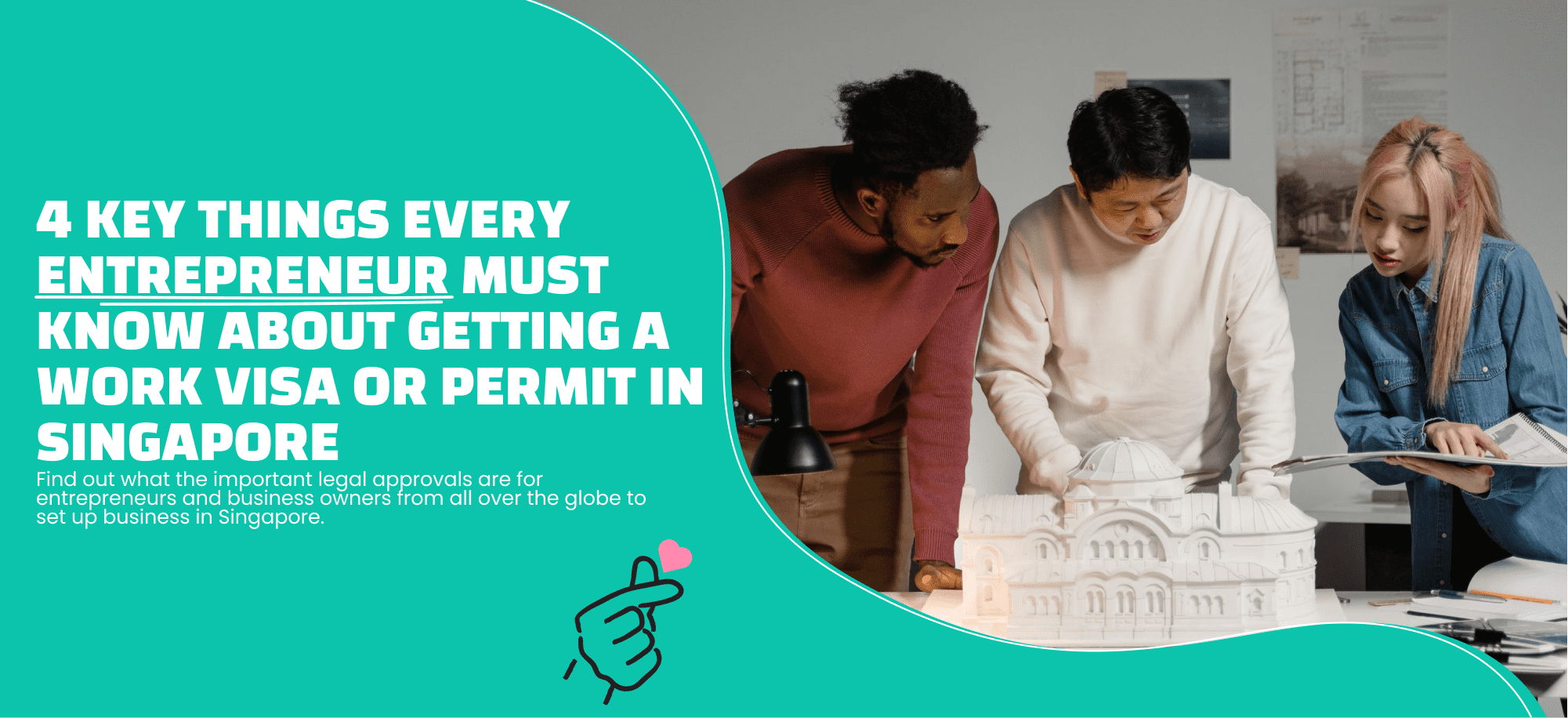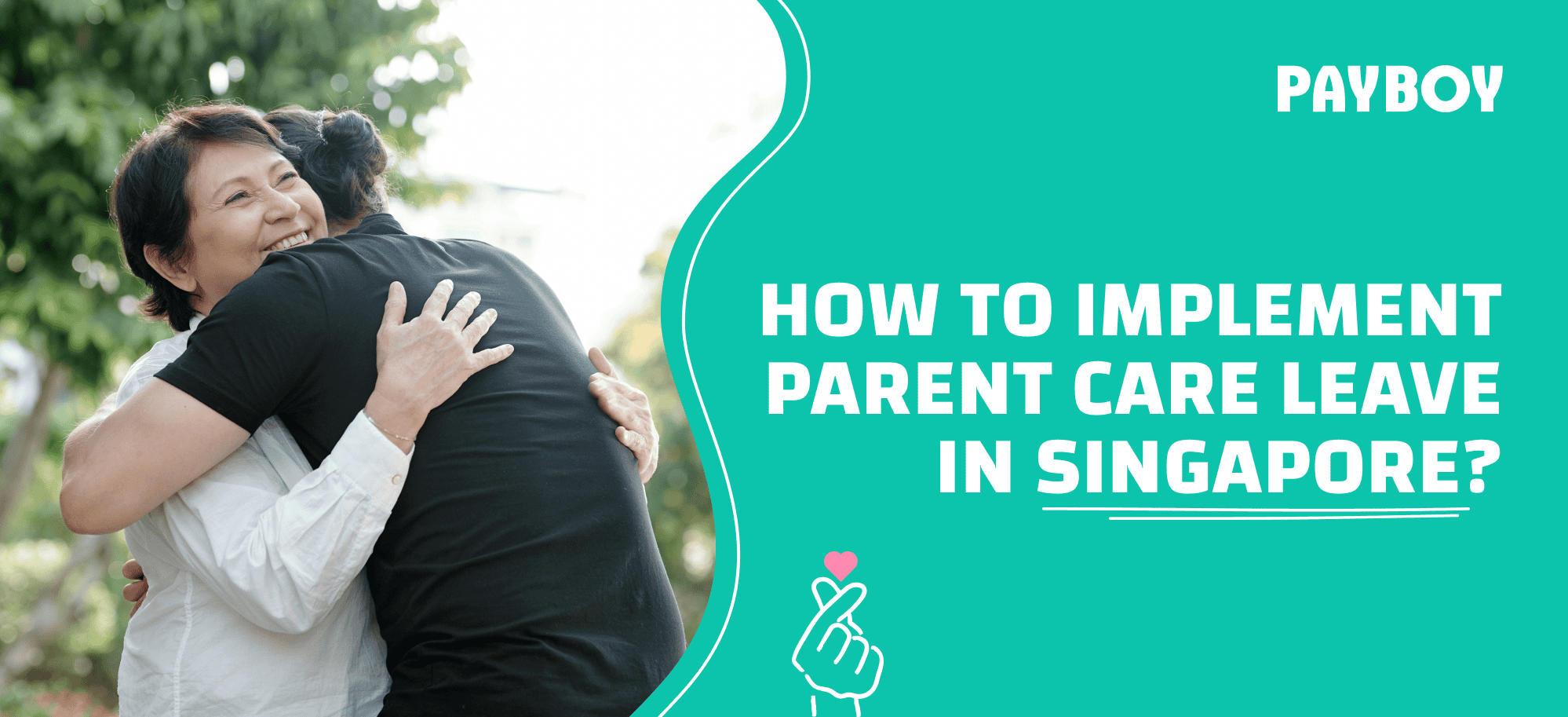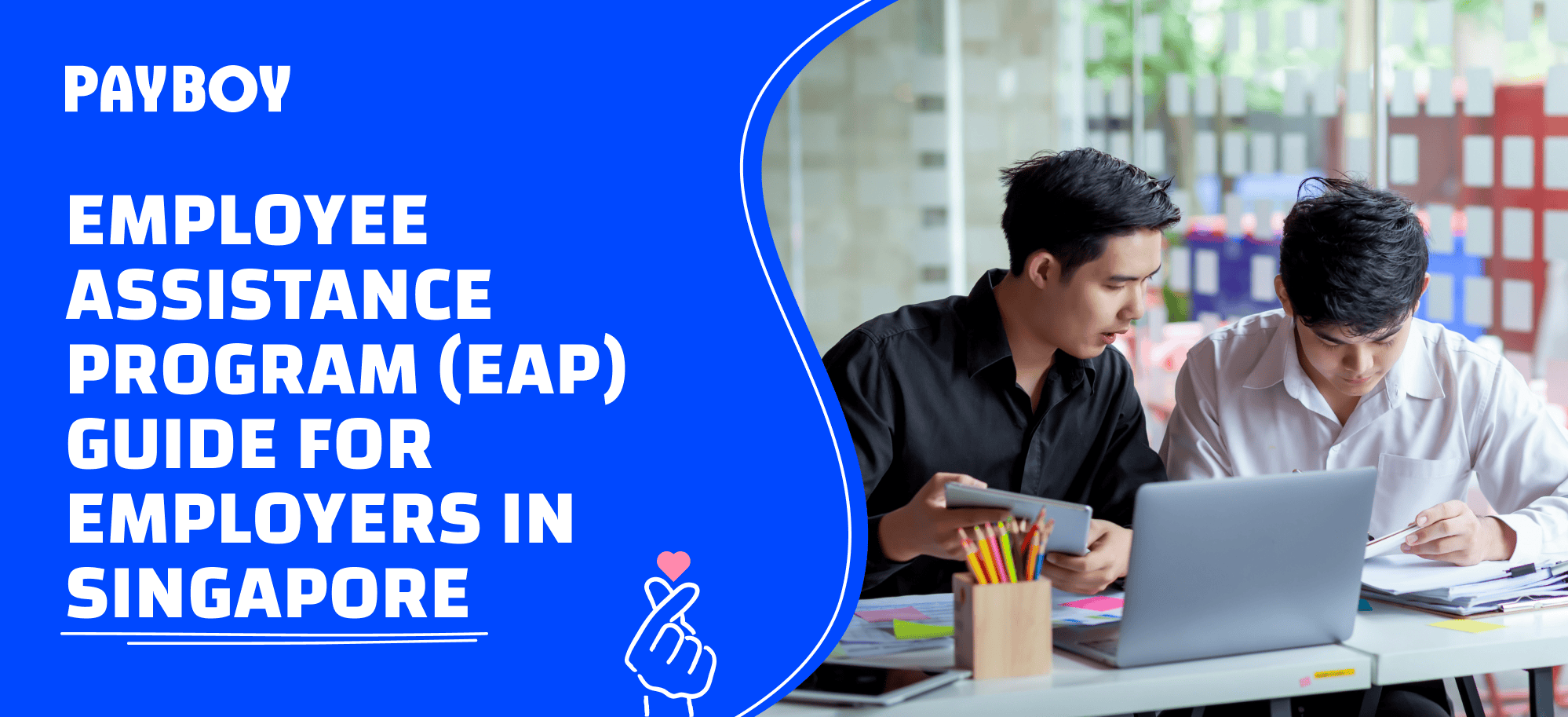Singapore is the quintessential hub for all things business globally in 2017. Across any industry, from FinTech to eCommerce, our little nation has developed sector abound sector to become the best country to start a business.
It’s no wonder then that entrepreneurs and business owners from all over the globe are looking to Singapore to set-up shop. As ever the case however, procedures are in place that interested prospects must first handle to begin.
The foremost hurdle of starting a business in Singapore would then surely be to first physically relocate to Singapore. Obtaining the legal approval to move here to start their business will be number 1 on the list - also known as obtaining a Working Visa/Permit.
For this aspect alone there will be numerous questions and doubts that could possibly cross a prospect’s mind. What are the requirements? How do I do it? Family, are they eligible?
In this article we will be looking to cover the 4 very key essentials that every foreign entrepreneur should know about getting a permit in Singapore.
Let’s begin with the types of work visas available for entrepreneurs and individuals looking to start a business.
1. Types of Visas Available:
For entrepreneurs and business owners looking to relocate to Singapore, there are 3 types of visas available.
Singapore Employment Pass (EP) Scheme
The Employment Pass is the main type of permit created for company owners or skilled employees who will be working in Singapore.
The requirements can be found here, but here are the main features to note:
- A minimum fixed salary of $3,600 is required
- The pass is issued to last for 1-2 years and open to renewal
- Permanent residence is applicable for Employment Pass holders
Entrepreneur Pass (EntrePass) Scheme
The Entrepreneur Pass is similar to the Employment Pass, but primarily designed for owners of newly incorporated or soon to be registered businesses, looking to relocate to Singapore to operate their companies.
Likewise the requirements can be found here, but here are the main features to note:
- The pass is issued for 1 year, and renewable if the business remains running
- The business must be less than 6 months old to be applicable for EntrePass registration
- Permanent residence is applicable for EntrePass holders.
Personalised Employment Pass (PEP)
The Personalised Employment Pass is a special enhanced version of the Employment Pass, created for highly qualified foreign professionals or existing Employment Pass holders who command a high income.
The requirements are more stringent as compared to the Employment Pass, but here are the main features:
- The pass is issued to last for up to 3 years, but is unrenewable.
- Upon expiry, the individual may continue to work in Singapore under a regular Employment Pass, or apply for a Permanent Residence.
- The main advantage of the PEP is the privilege of being able to switch jobs without re-applying for a new visa as long as the individual finds another job within 6 months.
- PEP holders are also allowed to bring in family members.
These are the 3 main work visas viable for foreign entrepreneurs and business holders looking to start a business in Singapore.
2. How to Obtain the Visa:
Now that we’ve identified the work permits applicable to entrepreneurs, next up will be knowing how to get it.
Legislation and legal procedures are usually neither easy nor simple, but Singapore stands up to its reputation of being a business-favourable country. Here are the chief guidelines you need to know to qualify for the working visa.
Employment Pass:
This is what a foreign professional or company owner needs to be eligible.
- A job offer from a Singaporean based firm
- The position has to be either managerial, executive, or specialised
- Command a basic minimum pay of $3,600 (and more experienced candidates to have higher)
- Possess recognizable qualifications, typically a university degree or specialist skills
All interested prospects should take this Self-Assessment Tool (SAT) created by the Ministry of Manpower to check your eligibility.
Once you’ve confirmed your eligibility, you should then submit your:
- Passport details
- Company’s latest business profile
- Educational certificates
Together with your Employment Pass application which can all be done online.
EntrePass:
The pass is open to all nationalities with requirements for individuals as follows.
- You have (or intend to start) a private limited registered company
- The company has to be less than 6 months old on the date of application
- Your company needs to have at least $50,000 in paid-up capital, provided by a Singapore-based bank statement
Your company has to also meet at least one of the 4 “innovational” conditions:
- Having funding from a VC or business angel
- Holds an intellectual property
- Has research collaboration with A*STAR or a university
- Is an incubatee at a Government-supported incubator
After meeting all of which, you can submit the required documents and the EntrePass application at any SingPost branch.
Full details can be found here.
Personalised Employment Pass:
The Personalised Employment Pass (PEP) is a special permit created for highly qualified Employment Pass holders or foreign professionals with a high earning salary. To be eligible for this pass you need to hit the following criteria:
- Command a salary of $12,000 a month for existing Employment Pass Holders
- Command a salary of $18,000 for foreign professionals
- Not in ownership of any company or business Singapore
- Not working as a freelancer
Upon confirming eligibility, prospects should then complete the PEP application form and submit it to any SingPost branch along with the necessary documents.
3. Perks of a Singaporean Work Visa:
After successfully attaining the work permit, there are a few benefits that foreign entrepreneurs would be interested in having, the most important of which would be getting passes for family members:
Pass holders who earn at least $5,000 a month are able to get family members to join them in Singapore conditionally of which they can find out here.
EntrePass holders have a tougher time bringing in family members. They will only be able to bring in family members on the first renewal of the pass, have met the minimum business spending amount, and have created the minimum number of total jobs. The full details and requirements can be found here.
- Personalised Employment Pass Holders
PEP holders have the best perks, given that it is also the toughest permit to attain. Upon holding the pass, they are able to bring spouses and family members under the age of 21 together with them on Dependent Passes, and they can also bring in their parents on Long Term Visit Passes.
4. How to Handle Renewal of Visas:
As the duration of the EntrePass is only applicable for 1 year, and 2 years for the Employment Pass, renewal is a must for businesses looking to go for the long run. As for Personalised Employment Pass holders, renewal is not applicable, however there are other measures in place to continue working in Singapore.
As such, here is what you need to know to renew your visas:
You can apply for a renewal of an Employment Pass up to 6 months before expiring, which can be done by either the employer or the employment agent. The renewal requirements being only that the individual’s income is at least $3,600, similar to the initial eligibility requirements.
The entire renewal process can be done online within 3 weeks, or by post which takes 8 weeks.
Most importantly, each pass can be renewed to up to 3 years.
Renewal can be done 3 months before expiry, and can only be done by the pass holder.
Slightly deferring from the Employment Pass however, EntrePass renewals last only up to 1 year, and take about 8 weeks to process.
To qualify for renewal, the entrepreneur has to hit a certain minimum amount of business spending, and create a number of jobs incrementally based on the number of years of the pass.
- Personalised Employment Pass
Renewal is not an option for PEP holders, after 3 years their pass will expire. However what PEP holders can do to continue working in Singapore is to apply for a regular Employment Pass or apply for a Permanent Residency.
Voila!
You’ve covered the key aspects of everything an entrepreneur should know about obtaining a working visa to start business in Singapore. From application of the permit to bringing in family members, and finally to renewal.
Singapore’s business climate is undeniably one of the best in the world for any entrepreneur, and now entrepreneurs have the legal know-how to relocate and set up shop in Singapore.






















